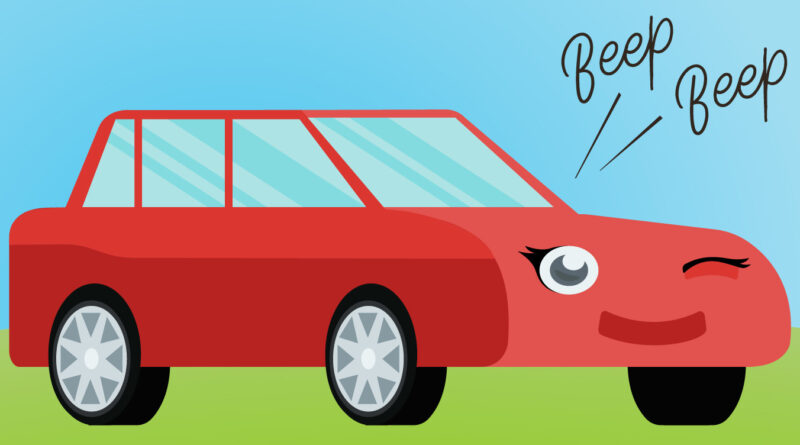Decoding Vehicle Security: Types of Car Alarms and Immobilisers
Ensuring the security of your vehicle is a top priority for every car owner. Car alarms and immobilisers are two essential components of a comprehensive vehicle security system. Understanding the different types of alarms and immobilisers available can help you make informed decisions to safeguard your vehicle from theft and unauthorized access. Let’s delve into the world of vehicle security to decode the types of alarms and immobilisers commonly used today.
Car Alarms: Sound the Alert
Car alarms are designed to deter theft and alert the owner or nearby individuals when unauthorized access is detected. There are various types of car alarms, each with its unique features and functionalities:
1. Audible Alarms:
- How They Work: Audible alarms produce loud sounds, such as sirens, horns, or other attention-grabbing noises, when triggered.
- Features: Varying sound patterns, volume adjustments, and some include flashing lights for added visibility.
- Pros: Immediate attention-grabbing, discourages theft, and alerts people in the vicinity. Thatcham alarms
2. Silent Alarms:
- How They Work: Silent alarms send alerts to the car owner or a monitoring service without audible sounds to avoid drawing attention to the theft attempt.
- Features: Notifications through mobile apps, SMS, or dedicated security services.
- Pros: Allows discreet monitoring and quicker response without alerting the thief.
3. Two-Way Alarms:
- How They Work: Two-way alarms provide communication between the car and the owner, allowing remote interaction.
- Features: Remote start/stop, door lock/unlock, and real-time status updates through a key fob or mobile app.
- Pros: Enables immediate response and control even from a distance.
Immobilisers: Halting Unauthorized Movement
Immobilisers prevent a vehicle from starting or moving without the correct authentication, making it a formidable deterrent against theft. Here are the main types of immobilisers:
1. Electronic Immobilisers:
- How They Work: Electronic immobilisers use electronic codes or transponders embedded in keys to authenticate the driver.
- Features: Key fob, RFID chips, or smart key technology.
- Pros: Effective in preventing hot-wiring and unauthorized key use.
2. Steering Wheel Locks:
- How They Work: Physical locks attach to the steering wheel, preventing it from turning.
- Features: Various designs, including bar-style locks and wheel-to-pedal locks.
- Pros: Visible deterrent, simple to use, and provides a physical barrier.
3. Fuel Cut-Off Systems:
- How They Work: Fuel cut-off systems interrupt the fuel supply to the engine, rendering the vehicle inoperable.
- Features: Manual or remote-controlled systems.
- Pros: Effective in preventing the engine from starting or running.
Choosing the Right Security System:
When selecting a car alarm and immobiliser system, consider the following factors:
- Budget: Determine how much you’re willing to invest in a security system.
- Location: Assess the risk level in your area to determine the necessary security measures.
- Integration: Opt for systems that seamlessly integrate with your lifestyle and daily routines.
- Professional Installation: Some advanced systems may require professional installation for optimal performance.
- User-Friendly: Choose a system that is user-friendly and suits your preferences.
Thatcham Categories:
Category 1: Alarm and Immobiliser Combinations
- Definition: This category involves a combination of an alarm system and an immobiliser.
- Features:
- Passively set alarm and immobiliser.
- Detection of window breaks.
- Tilt sensors to detect changes in the vehicle’s angle.
- Perimeter detection to identify unauthorized entry.
- Ignition detection for added security.
Category 2: Electronic Immobiliser
- Definition: Electronic immobilisers prevent the vehicle from starting by requiring authentication.
- Features:
- Immobiliser only (no alarm function).
- Passively set electronic immobiliser.
Category 2/1: Alarm Upgrade
- Definition: An upgrade for Category 2 immobilisers with a retrofitted alarm system.
- Features: Enhances a Category 2 immobiliser with the addition of a Thatcham-approved alarm.
Category 3: Mechanical Immobiliser
- Definition: Physical devices that physically obstruct the vehicle, such as wheel locks.
- Features:
- Wheel locks or other mechanical devices.
- Offers a visible deterrent against theft.
Category 4: Wheel Locking Devices
- Definition: Security devices specifically designed to lock the vehicle’s wheels.
- Features:
- Locking wheel nuts or similar mechanisms.
- Focus on securing the wheels against theft.
Category S5: Tracking and Recovering Systems
- Definition: Systems designed for tracking and recovering stolen vehicles.
- Features:
- GPS systems to track the location of a stolen car.
- Remote immobilisers that can prevent a stolen vehicle from being driven.
Category S7: Stolen Car Location
- Definition: Similar to Category S5 but without immobilising capabilities.
- Features:
- GPS systems for tracking the location of stolen cars.
- Lacks the remote immobilisation feature found in Category S5.
Understanding Thatcham categories provides valuable insights into the types of security systems available and their respective features. When choosing a car security system, considering the Thatcham category can help you select the level of protection that aligns with your security needs. Whether it’s a combination of alarm and immobiliser, electronic immobiliser, or tracking system, Thatcham categories serve as a reliable guide for enhancing the security of your vehicle.
Remember that combining multiple security layers, such as both an alarm and an immobiliser, enhances overall protection. Regularly update and maintain your security system to ensure it remains effective over time. By understanding the types of alarms and immobilisers available, you can make informed decisions to keep your vehicle safe and secure.
Buying a used VW. Vauxhall, BMW, Jaguar, Ford, Volvo, Range rover, Bentley, Aston Martin, Porsche, Ferrari, Lamborghini, Maserati, Hyundai

